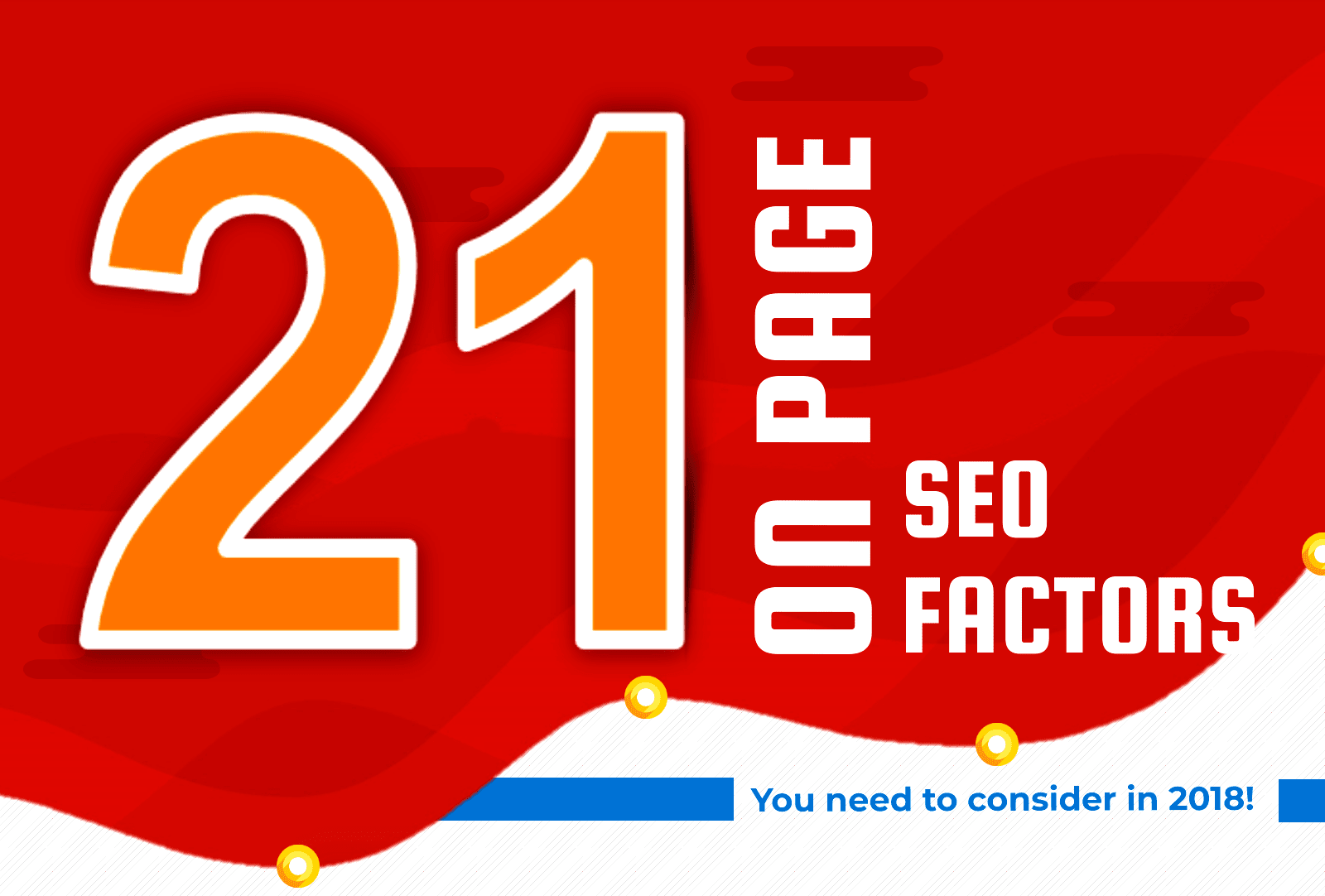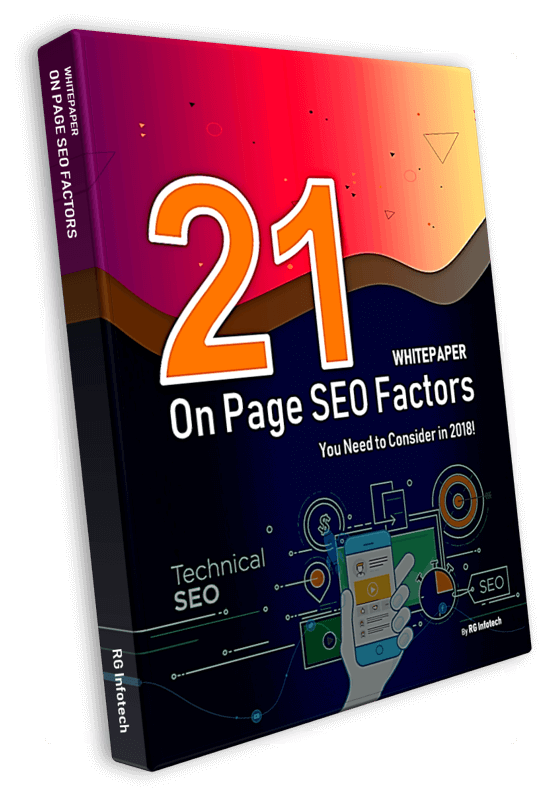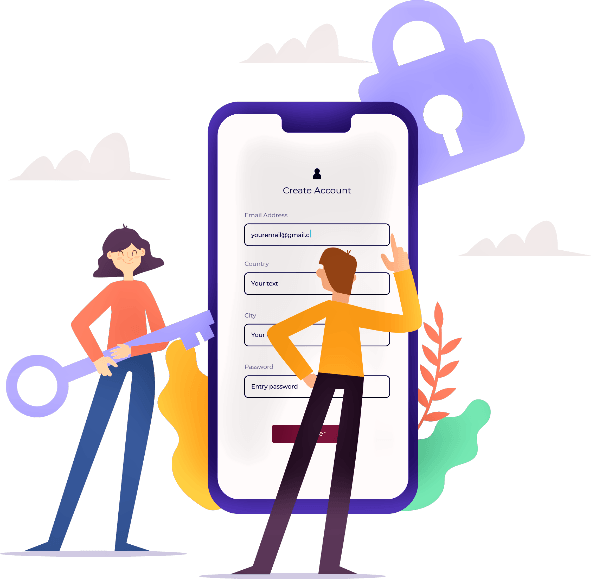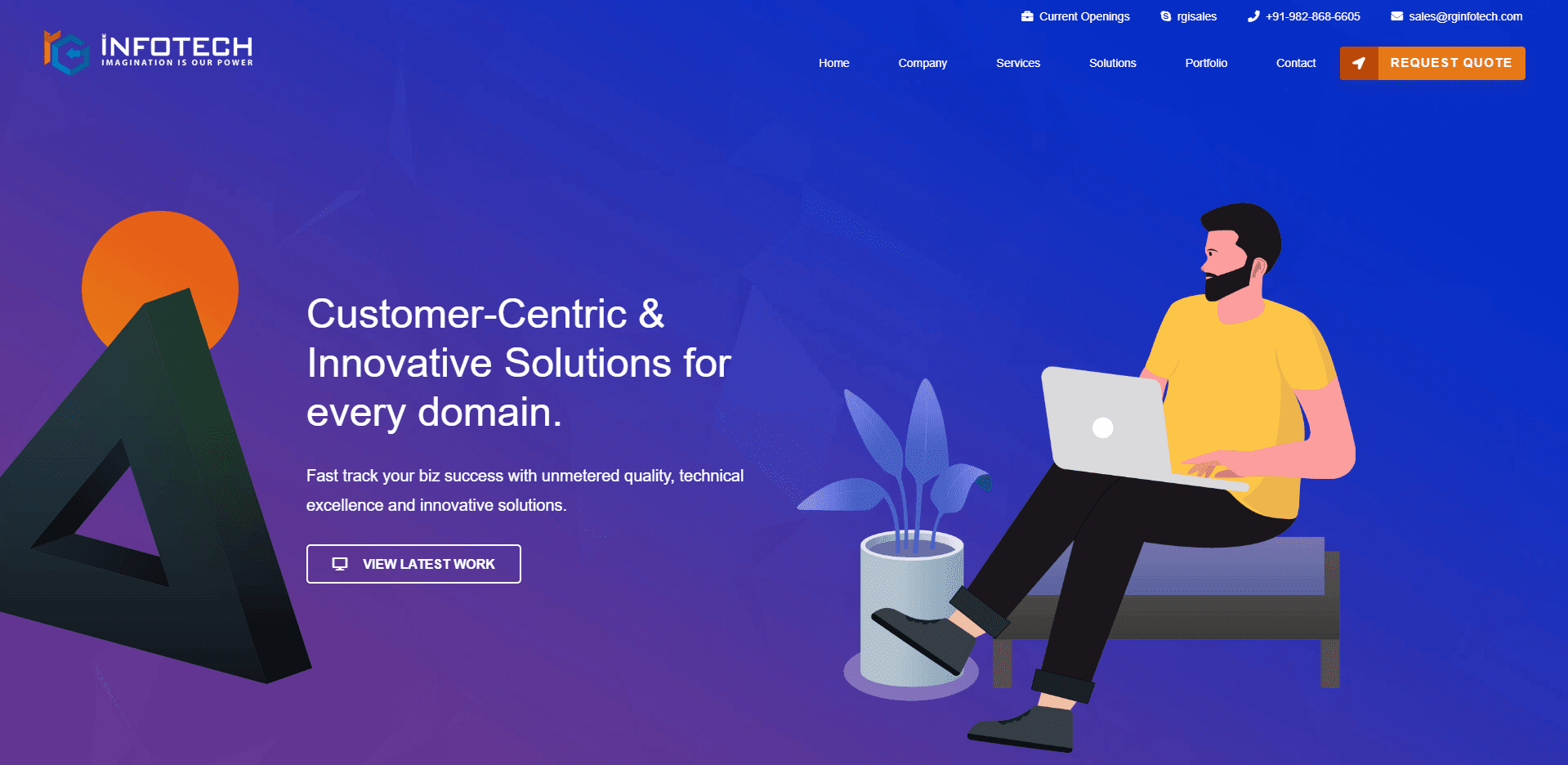21 On-Page SEO Factors, you need to consider in 2018!
Would you like to be most favorite for search engines?
Or want to rank higher than your competitors for relevant keywords?
If your answer is yes, then you have to look deeply on your website optimization, as optimization isn’t just a practice, it is an essential thing to be done. Without a proper audit and optimization, you can’t opt appropriate position on popular search engines.
To get desired position on search results, there are two organic methods available:
- On Page SEO Optimization
- Off Page SEO Optimization
But to make it more accurate for search engines to identify, what exactly a page is about, we have to focus majorly on “On Page Optimization”.
Don’t you know what is on page SEO?
On Page SEO is a technique, which used to analyze page structure, keyword placement, URL structure, content optimization, etc.
Table of Content
- Why you need to focus on “On Page SEO Optimization”?
- 21 On page SEO factors, you need to consider in 2018!
- 01. USER EXPERIENCE OPTIMIZATION (UXO)
- – URL STRUCTURE
- – MULTIMEDIA CONTEXT
- – H1 HEADING TAG
- – CONTENT TITLE
- – SUBHEADINGS
- – CALL TO ACTION
- – SOCIAL SIGNALS
- – SITE SPEED
- 02. SEARCH EXPERIENCE OPTIMIZATION (SXO)
- – WEBSITE TITLE
- – FIRST 100 WORDS
- – INTERNAL LINKING
- – LONGER WORD COUNT
- – DWELL TIME
- – TARGET KEYWORDS
- 03. SEARCH ENGINE OPTIMIZATION (SEO)
- – IMAGE OPTIMIZATION
- – LSI KEYWORDS
- – META DESCRIPTION
- – EXTERNAL LINKS
- – SCHEMA MARKUP
- – REGULAR WEB AUDIT
- – CANONICAL TAG
- 01. USER EXPERIENCE OPTIMIZATION (UXO)
- Conclusion – Wrapping Words!
- Download Whitepaper!
Before moving ahead, first clear your doubts about On-Page Optimization and On-Site Optimization:
- Optimizing entire website denoted by On-Site Optimization, where we have to work on Robots.txt, Sitemaps, Permalinks, Code Structures, Google Analytics setup, etc.
- Whereas optimization of a single page either a web page or post page denoted by On-Page Optimization. Where we have to be focused on page performance via content optimization, keyword placement, URL structuring, heading optimization, etc.
Why you need to focus on “On Page SEO Optimization”?
Let me ask you first, who you are? – A blogger, an organization, or a newbie in the Digital Marketing industry!
In both of the cases, you have to be more focused and engaged into trends, because without having knowledge, you can face Panda Update penalty, which usually caused due to low quality content.
By using proper optimization, you can cure your website from the penalty and raise your blog as a leading place for your targeted audience.
21 On page SEO factors, you need to consider in 2018!
Before moving forward to proven on page SEO checklist, first make sure that you have completed basic optimization on your website, that includes, keyword research & analysis, robots.txt implementation, broken link optimization, Google Analytics setup, etc.
With above specified basic SEO optimization, now we can move ahead to the modest 21 On Page SEO Tips, that have already been experimented by industry experts.

USER EXPERIENCE OPTIMIZATION (UXO)
User Experience, one of the major factors of success in online industry. Try to optimize these factors before your website or post goes live. If a user satisfied, Google will automatically improve your ranks and enhance your reachability.
Take a look:
01. URL STRUCTURE – Make it SEO friendly
Don’t waste your time in ugly URL creations such as:
http://example.com/SEO-title.
02. Try to Utilize appealing MULTIMEDIA CONTEXT
Multimedia context such as relevant images, videos, presentations, and animated gifs, will help your content to grab attention and increases engagement time.
Keep appealing graphics, images, videos and presentation in your posts to decrease bounce rate and enhance engagement.
03. Add Important Keywords in H1 HEADING TAG
Heading Tags impressed more and having an SEO optimized heading will boost your focus keyword rank.
That’ why try to keep your post title under an H1 Heading Tag. Some CMS like: WordPress, automatically did it for you, but sometime a minute change in theme file can change this setting too. So, check your settings and update them according to the proven practices.
04. CONTENT TITLE - Try to use numbers
According to the online survey, Numbers in the title rank better and boost CTR. That’s why keeping numbers in your post titles will enhance your reach and impacts more in user engagement.
05. Divide your content into SEO friendly SUBHEADINGS
Add your target keywords in your sub headings (H2-H6) to make your content more relevant and segmented accordingly. Google loves it and somehow prefers to rank better for the terms that comes in sub headings. So, try to keep your sub-headings relevant and targeted.
06. CALL TO ACTION - Use it to improve conversions
Call to action encourage your user engagement, flow and conversion, as it directly points out to the solution, which might possibly not highlight under your services or other sections of the website.
So, try to achieve the ultimate goal of conversion via inserting an appealing Call to Action Button in your content.
Pro Tip: Keep “Call to Action” button appealing, but don’t make it sales pitched ad, Google don’t like that.
07. SOCIAL SHARING SIGNALS - will increase your reach
There’s not a direct impact of social signals on search ranks, but they can increase your reach which surely boosts your rank.
Social platforms are one of the trendiest methods to increase your reach, spread your services and attract new customers. Along with that, they allow you to boost your user base and provide them more solutions directly.
08. SITE SPEED - Optimized speed boost your performance
Use Google’s Page Insight Tool to optimize your site speed. It will recommend you possible changes that surely improve your performance.
SEARCH EXPERIENCE OPTIMIZATION (SXO)
Search Engines, the only destination for which we work and without improving their experience, how can you gain your desired ranking. So, keep your eyes on the factors that help search engines to identify your important keywords.
Take a look:
09. Use SEO optimized WEBSITE TITLE
Keep your title tag under 65 characters or 512 pixels, as per the guideline, because it impacts directly on the user perception.
Title Tag is the first and most important SEO factor that leads the way to rank.
So, use your important keywords here, as it will reflect in Google.
10. FIRST 100 WORDS - Make them your place for keywords
Content Optimization, the term that helps you to identify a thick line between low quality content and search engine’s preferred content. To make your content more searchable just add your keywords in first 100 words and make them appear in relevant search results.
11. INTERNAL LINKING - Let you connect relevant content
Do you know Wikipedia? If you ever analyzed its content, then you can easily find out that they always connect their content to each other, obviously relevance matters. Just like them, you should opt out that tactic and always try to add 2-3 internal links in your content.
With one of the on-page SEO 2018 checklist, get ready to connect most relevant pages and posts in your content to get more coverage by search engines.
12. LONGER WORD COUNT - Help to decrease bounce rate
According to the Backlinko study, Longer Content usually gets more attention and better rank in Google. With more word count, you can:
- explain better
- increase authority by implementing market stats
- easily optimize for important keywords, and
- have more ways to engage a user.
So, keep your content more informative, compelling, and impressive that can provide value to the users. Try to make your word count 1200+ to get more attention from users as well as by Google (although there is no set limit of word counts per post).
13. Work on your content DWELL TIME
Google loves more engagement and if a user immediately presses back button after landing on your website, then Google consider it as a low-quality content and can penalize you for it.
To avoid Google’s Penalty and increase dwell time of your site, try to write longer engaging content with relevant outbound links that provoke your users to stay more on your website.
14. Early Use of TARGET KEYWORDS
SEARCH ENGINE OPTIMIZATION (SEO)
Search Engine Optimization, one of the traditional & modern method to boost up organic ranks in Google and other search engines. “Traditional” because it is in practice since decades and “Modern” because it uses to upgrade along with market trends.
Take a look:
15. Be focused on IMAGE OPTIMIZATION
Google is just a cluster of several algorithms through which it used to crawl and index context. It can’t understand graphics, videos, or presentations that’s why, to make a graphic readable, you have to add relevant keywords in your image ALT Tag and help them rank in image searches.
Even, by having larger image files will make your website or post slower, which directly impacts negatively on the experience of both users and search engines. To make an image valuable, you have to optimize your images through compressor tools such as Adobe photoshop, compressor.io, tinypng.com, etc.
16. Enhance reach with LSI KEYWORDS
Do you know, what is LSI?
LSI – Latent Semantic Indexing is the method that Google uses to identify relevancy of different terms and phrases with each other and provide more accurate results in its SERP.
Similarly, LSI keywords are the semantically related terms that boost impressions and rank of your target keywords based on user search patterns and preference. In short, Google loves it, and you can see the suggestion at bottom of its search page.
So, try to use semantically related terms to broad your keywords, it determines the relevancy and quality of the content.
17. Optimize your META DESCRIPTION
A small search snippet that can increase your reach, and engagement. And make your post recommended by search engines with improved ranks and more impressions. So, keep focus on SEO optimized Meta Description.
18. Include Authorize EXTERNAL LINKS
Authorized & relevant outbound links will help Google to identify your content topic and improve your page authority. You can check out MOZ blogs, and Kissmetrics Blog, they used to link major brands or popular terms with high authority websites.
19. Boost your CTR with SCHEMA MARKUP
What do you think how Google filter search results?
Google used to filter relevant terms using structured data markup. More information means improved results and through a code structure, Schema provides rich data of information to Google that help to rank better in search.
20. Keep your eyes on errors via REGULAR WEB AUDIT
Make your website error free to improve user engagement and Google’s preference through regular web audits and analysis.
You can use online tools or paid tools to get more accurate audit reports, best suggestions, deep analysis and instant support by experts. Through regular audit and analysis, you can easily identify site drawbacks, user drop reasons, crawling errors, broken links and much more with probable recommendations.
So, keep your eyes on your website performance through regular web audit and analysis.
21. CANONICAL TAG - Use it to avoid duplicate contents
Conclusion

Whitepaper
21 On-Page SEO Factors, you need to consider in 2018!
Download the complete guide about the digital evolution and get additional 3 tips along with 21 On Page SEO Factors that can help you to accelerate your online growth!



 rgisales
rgisales



